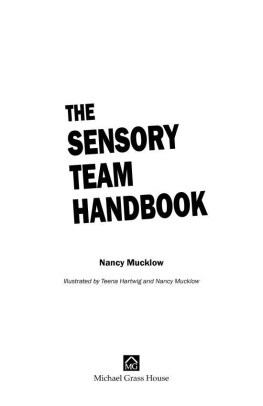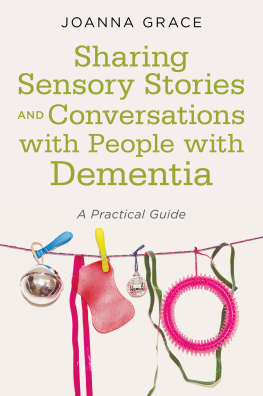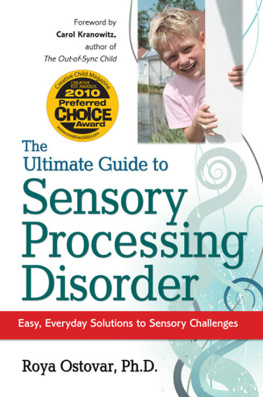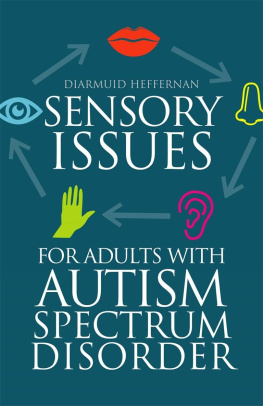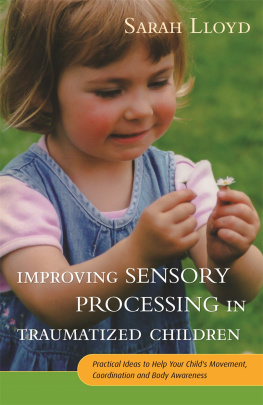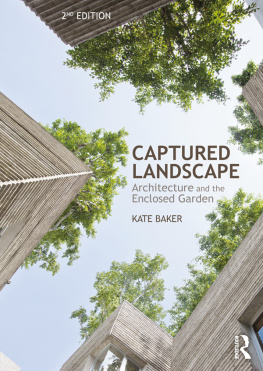Sensory Penalities
EMERALD STUDIES IN CULTURE, CRIMINAL JUSTICE AND THE ARTS
Series Editors:
Yvonne Jewkes
University of Bath, UK
Travis Linnemann
Kansas State University, USA
Sarah Moore
University of Bath, UK
This series aims to take criminological inquiry in new and imaginative directions, by publishing books that represent all forms of criminal justice from an arts or cultural perspective, and that have something new to tell us about space, place and sensory experience as they relate to forms of justice. Building on emergent interest in the cultural, autoethnographic, emotional, visual, narrative and sensory in Criminology, books in the series will introduce readers to imaginative forms of inspiration that deepen our conceptual understanding of the lived experience of punishment and of the process of researching within the criminal justice system, as well as discussing the more well-rehearsed problems of cultural representations of justice.
Specifically, this series provides a platform for original research that explores the myriad ways in which architecture, design, aesthetics, hauntology, atmospheres, fine art, graffiti, visual broadcast media and many other cultural perspectives are utilized as ways of seeing and understanding the enduring persistence of, and fascination with, the formal institutions of criminal justice and punishment.
Sensory Penalities: Exploring the Senses in Spaces of Punishment and Social Control
EDITED BY
KATE HERRITY
University of Cambridge, UK
BETHANY E. SCHMIDT
University of Cambridge, UK
AND
JASON WARR
De Montfort University, UK
United Kingdom North America Japan India Malaysia China
Emerald Publishing Limited
Howard House, Wagon Lane, Bingley BD16 1WA, UK
First edition 2021
Selection and editorial matter 2021 Kate Herrity, Bethany E. Schmidt, Jason Warr. Individual chapters their respective authors. Published under exclusive licence
Reprints and permissions service
Contact:
No part of this book may be reproduced, stored in a retrieval system, transmitted in any form or by any means electronic, mechanical, photocopying, recording or otherwise without either the prior written permission of the publisher or a licence permitting restricted copying issued in the UK by The Copyright Licensing Agency and in the USA by The Copyright Clearance Center. Any opinions expressed in the chapters are those of the authors. Whilst Emerald makes every effort to ensure the quality and accuracy of its content, Emerald makes no representation implied or otherwise, as to the chapters suitability and application and disclaims any warranties, express or implied, to their use.
British Library Cataloguing in Publication Data
A catalogue record for this book is available from the British Library
ISBN: 978-1-83909-727-0 (Print)
ISBN: 978-1-83909-726-3 (Online)
ISBN: 978-1-83909-728-7 (Epub)
Contents
Alison Liebling
Kate Herrity, Bethany E. Schmidt and Jason Warr
Part I
Making Sense of the Sensory
Kate Herrity
Jason Warr
Jo Collinson Scott and Fergus McNeill
Daina Stanley
Part II
Sensing the Field
Bethany E. Schmidt and Andrew M. Jefferson
Julienne Weegels
Carla Reeves
Jennifer Peirce
Part III
Subverting the Senses
Victoria Canning
Lisa Flower
Part IV
Sensory Reflections
Yvonne Jewkes and Alison Young
Amy B. Smoyer
Ian ODonnell
Alistair Fraser
Eamonn Carrabine
About the Editors
Kate Herritys doctoral research explored the significance of sound in a local mens prison using aural ethnography. She takes particular interest in researching at the edges both of criminology and epistemology, and curates www.sensorycriminology.com, a companion to this book. She is the Mellon-Kings Cambridge Junior Research Fellow in Punishment (20202024).
Bethany E. Schmidt is a Lecturer in Penology at the Institute of Criminologys Prisons Research Centre at the University of Cambridge. Her main research interests lie at the intersection of democracy, citizenship, and punishment. She leads multiple international projects related to measuring the social, moral, and political climates of prisons.
Jason Warr is a Senior Lecturer in Criminology & Criminal Justice at De Montfort University. His research interests include prisons, punishment, criminological theory, sensory criminology, and the philosophy of science. His most recent book is Forensic Psychologists: Prison, Power, and Vulnerability (Emerald, 2020).
About the Authors
Victoria Canning is a Senior Lecturer in Criminology at the University of Bristol, Co-coordinator for the European Group for the Study of Deviance and Social Control, Associate Director at Border Criminologies at Oxford University, and Trustee at Statewatch. She is currently undertaking a British Academy project titled Unsilencing Sexualised Torture.
Eamonn Carrabine is a Professor of Sociology at the University of Essex and the Editor-in-Chief of the British Journal of Criminology. He has published broadly in criminology and sociology and is currently researching a project on The Iconography of Punishment: From Renaissance to Modernity.
Lisa Flower is a Lecturer and Researcher in Sociology and Criminology at Lund University. She has previously published a book Interactional Justice: The Role of Emotions in the Performance of Loyalty exploring the collective work involved in constructing criminal trials, and she is currently researching the impact of live blogs on open justice and legal professionals work life.
Alistair Fraser is a Senior Lecturer in Criminology, and Director of the Scottish Centre for Crime and Justice Research, at the University of Glasgow. He is the author of Urban Legends: Gang Identity in the Post-Industrial City (OUP, 2015) and Gangs & Crime: Critical Alternatives (Sage, 2017).
Andrew M. Jefferson is a Senior Researcher at DIGNITY. His research focuses on prisons and prison reform in the Global South with a specific interest in countries undergoing transition and the relationship between confinement and subjectivity. Current research includes a project on legacies of detention in Myanmar (https://legacies-of-detention.org/).
Yvonne Jewkes is a Professor of Criminology at the University of Bath. She currently holds two ESRC research grants for projects on the rehabilitative prison and the persistence of the Victorian prison. Her main research interest is prison architecture and design, and she is a Founding Editor of the journal





